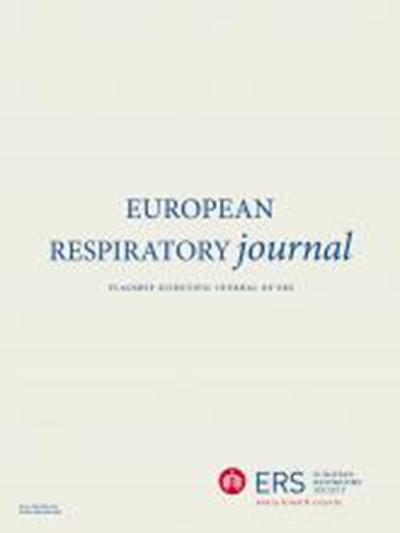ERS technical standard: Global Lung Function Initiative reference values for multiple breath washout indices.
IF 16.6
1区 医学
Q1 RESPIRATORY SYSTEM
引用次数: 0
Abstract
BACKGROUND Multiple breath washout is a lung function test based on tidal breathing that assesses lung volume and ventilation distribution. The aim of this analysis was to use the Global Lung Function Initiative methodology to develop all-age reference equations for the multiple breath washout indices lung clearance index (LCI) and functional residual capacity (FRC). METHODS Multiple breath washout data from healthy individuals were collated from sites. Data were re-analysed using the latest software versions. Reference equations were derived using the lambda-mu-sigma (LMS) method using the generalised additive models of location shape and scale programme in R. The impact of equipment type, inert tracer gas, and equipment dead space volume on the derived reference ranges were investigated. RESULTS Data from 23 sites (n=3647 test occasions) were submitted. Reference equations were derived from 1581 unique observations from participants between the ages of 2 and 81 years. Equipment type, inert tracer gas, and equipment dead space volume did not significantly affect the prediction equations for either LCI or FRC. Reference equations for LCI include age as the only predictor, whereas sex-specific reference equations for FRC included height and age. CONCLUSIONS Global Lung Function Initiative reference equations for multiple breath washout variables provide a standard for reporting and interpretation of LCI and FRC.ERS 技术标准:全球肺功能倡议多种呼吸冲洗指数参考值。
背景多重呼吸冲洗是一种基于潮式呼吸的肺功能测试,可评估肺容量和通气分布。本分析的目的是使用全球肺功能倡议的方法为多次呼吸冲洗指数肺清除指数(LCI)和功能残余容量(FRC)制定全年龄段的参考方程。使用最新版本的软件重新分析数据。使用λ-mu-sigma(LMS)方法,使用 R 中的位置形状和比例程序的广义加法模型推导出参考方程。结果提交了 23 个站点的数据(n=3647 次测试)。通过对年龄在 2 至 81 岁之间的参与者进行 1581 次独特的观察,得出了参考方程。设备类型、惰性示踪气体和设备死腔容积对 LCI 或 FRC 的预测方程均无明显影响。LCI参考方程将年龄作为唯一的预测因素,而针对不同性别的FRC参考方程则包括身高和年龄。
本文章由计算机程序翻译,如有差异,请以英文原文为准。
求助全文
约1分钟内获得全文
求助全文
来源期刊

European Respiratory Journal
医学-呼吸系统
CiteScore
27.50
自引率
3.30%
发文量
345
审稿时长
2-4 weeks
期刊介绍:
The European Respiratory Journal (ERJ) is the flagship journal of the European Respiratory Society. It has a current impact factor of 24.9. The journal covers various aspects of adult and paediatric respiratory medicine, including cell biology, epidemiology, immunology, oncology, pathophysiology, imaging, occupational medicine, intensive care, sleep medicine, and thoracic surgery. In addition to original research material, the ERJ publishes editorial commentaries, reviews, short research letters, and correspondence to the editor. The articles are published continuously and collected into 12 monthly issues in two volumes per year.
 求助内容:
求助内容: 应助结果提醒方式:
应助结果提醒方式:


